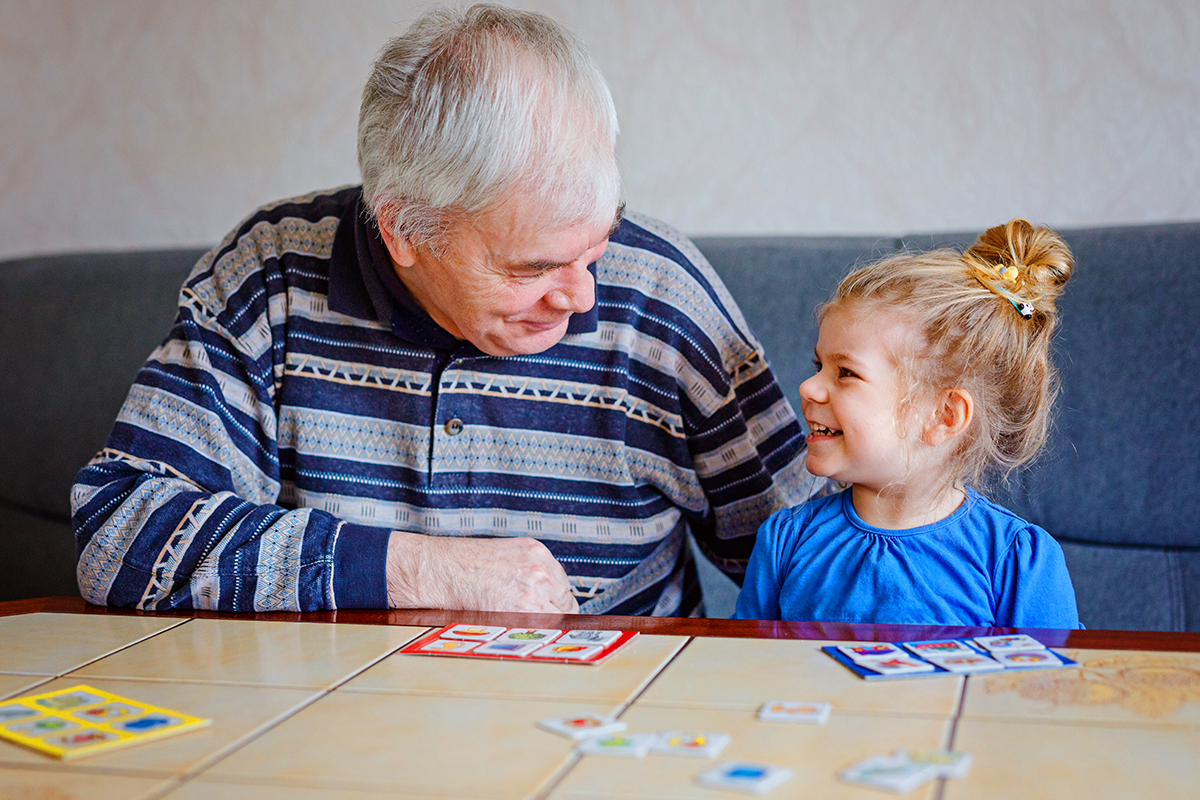The intergenerational Wellbeing and Brain-Healthy Lifestyles Intervention (GenWell-BRAVE): A Feasibility Pilot
GenWell-BRAVE is a trial within a trial. Re-randomising the control sites of the INTEGRITY trial, it compares the effects of two versions of a multidomain intervention. The primary outcome of this pilot is change in cognition, and it also investigates intervention feasibility, as well as mental health in adults and emotion regulation in children.
Aim of the project
The objective of this study is to evaluate the feasibility and estimate the impact of including interventions to enhance wellbeing in a multi-domain intergenerational practice program – where the program targets improved dementia risk profiles in community-dwelling older adults.
Location
4 sites across Greater Sydney, Australia
Local setting
GenWell-BRAVE is a trial within a trial, and an ancillary of the “INTErGenerational intervention to Reduce frailty trial (INTEGRITY).” It re-randomises INTEGRITY control sites, recruits from the existing pool of participants, and implements a new cluster-randomised design to compare two versions of a multi-domain intervention.
Organizations involved
The George Institute for Global Health, Australia, and the University of New South Wales, Australia
Principal Investigator (PI)
Dr. Mei Ling Lim, The George Institute for Global Health
Research team
The George Institute for Global Health:
April Mallon
Dr. Ruth Peters
Dr. Amy Sparks
Dr. Shannon Jarrott
Dr. Katie Harris
Duration of the intervention
5 months
Project start date
2025
Project end date
2026 (Pilot)
Current stage of the project
Data collection ongoing
Number of study participants
40
Target population
Community-dwelling adults aged 65 years or more and preschool children aged 3-4 years
Primary outcome
Change in cognition (NIH Toolbox) in older adults
Secondary outcomes
Feasibility measures:
- Adherence
- Retention
- Implementation fidelity
- Acceptability
In adults:
- Positive mental health
In children:
- Emotion regulation
Exploratory outcomes
In adults:
- Dementia risk score
- MoCA
- Emotion regulation
- Resilience
In children:
- Emotional and behavioural attributes
- Measure of empathy in early childhood
Additional qualitative and observational data collection.
Intervention
The intervention involves a structured 20-week program of group-based intergenerational sessions, where older adults and preschool children are brought together within each participating preschool. Participants attend one 2-hour session each week. The sessions are developed to stimulate activity in the following domains:
Domains:
- Physical activity
- Cognitive engagement
- Social engagement
- Healthy diet
- (Wellbeing – Intervention group only)
The use of the intergenerational context aims to deliver multi-domain intervention in an accessible and community-embedded way. The intervention group specifically adds wellbeing focused intervention to explore its impact on health outcomes. The control group receives the intervention targeting physical activity, cognitive engagement, social engagement, and healthy diet only.
Results
Results have not yet been published.
Acknowledgements
This trial leverages funding from the INTEGRITY Trial, which is provided by the Australian National Health and Medical Research Council (NHMRC).

Registered trial
ACTRN12625000067471

